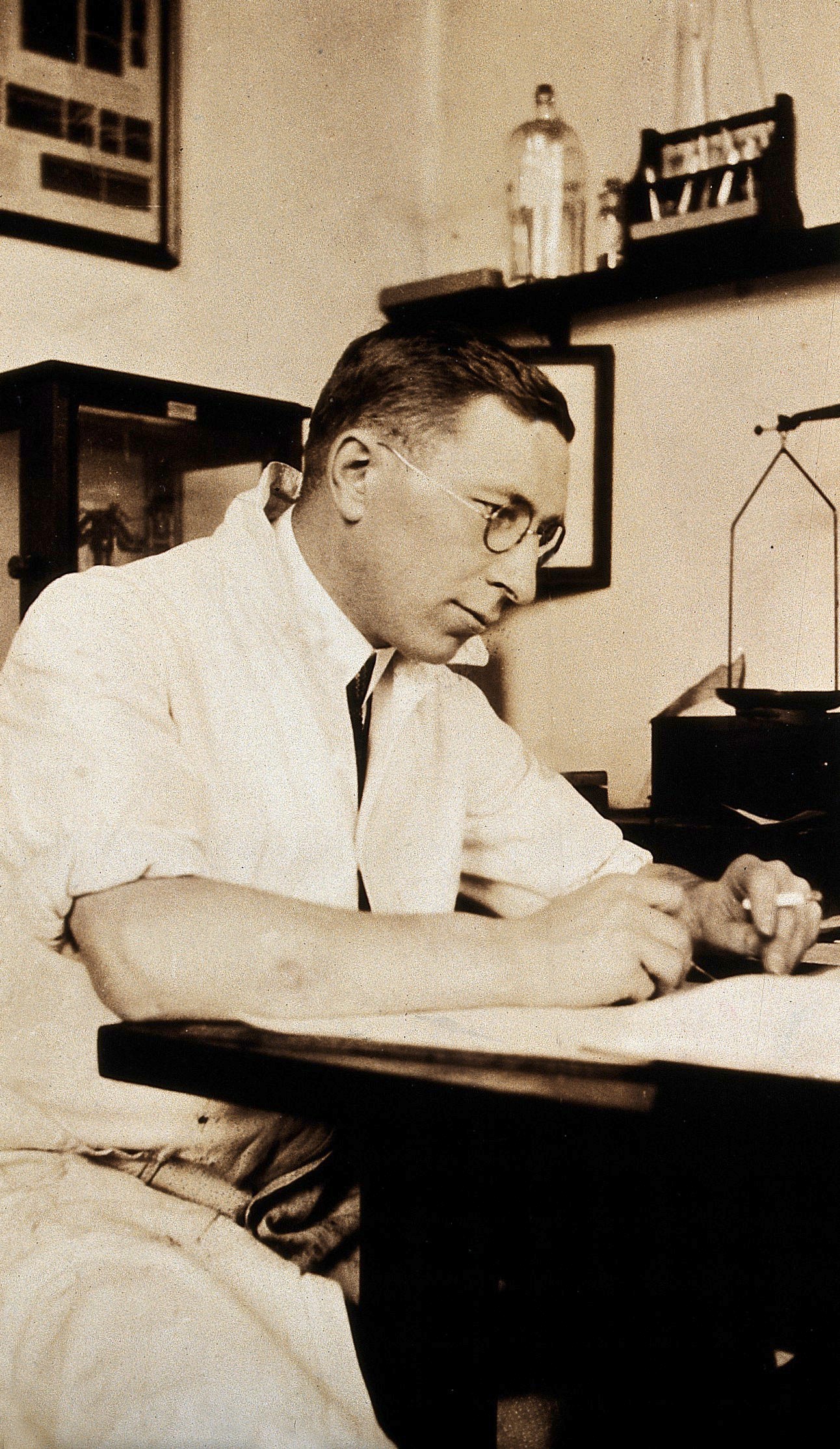Banting, Sir Frederick Grant (1891-1941), a Canadian surgeon, was the principal discoverer of insulin. In 1921, Banting was given laboratory space at the University of Toronto. There, he worked with John James Rickard Macleod, Charles Herbert Best, and James Bertram Collip to isolate a hormone from the pancreas that would control diabetes.

With Macleod’s leadership and Collip’s knowledge of chemistry, the team isolated the insulin hormone in only eight months. At the time, Banting was 30 and Best was a 22-year-old physiology student. The discovery of insulin was published in 1922. The discovery was one of the most important contributions in the history of medicine and revolutionized the treatment of diabetes (see Diabetes; Insulin).
Banting and Macleod received the 1923 Nobel Prize in medicine for the discovery. When they learned about the award, Banting telegraphed his co-worker, Best, “You are with me in my share always.” Macleod in turn shared his prize money with Collip. See Best, Charles Herbert.
Banting was born on Nov. 14, 1891, on a farm near Alliston, Ontario, and graduated from the University of Toronto. He served as a physician in the Canadian Army during World War I (1914-1918). He was wounded in the hand during the war, and received the Military Cross for conspicuous bravery. After the war, Banting became an instructor of physiology at the University of Western Ontario (now called Western University).
Banting was in charge of research at Banting Institute, Toronto, when he joined the Canadian Army as a major during World War II. He was killed in an airplane crash over Newfoundland on Feb. 21, 1941, while on his way to England.
